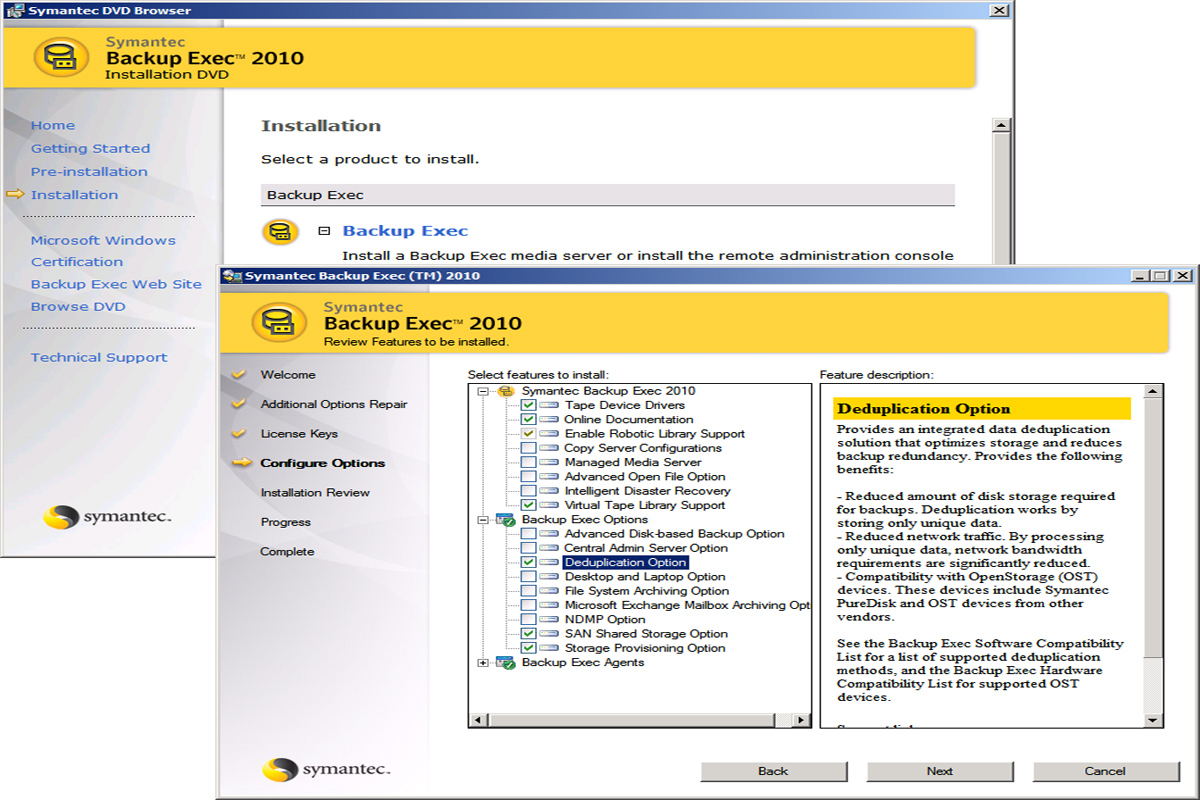Why is backing up given short shrift?
Data loss can be one of the quickest ways to bring a business to its knees. So why aren’t more people concerned about keeping their files safe and secure?

Short shrift
And it, as Databarracks discovered, is still given surprisingly short shrift. While many users do diligently back up their files, a surprising number of firms aren't going far enough. The survey revealed, for instance, that of those who don't use encryption, or take data off-site, or replicate it, 74 per cent remain confident that their policies are still up to the job.
And it gets worse. Some 67 per cent discovered Databarracks, of those who are content not to check back up logs, or square off someone's time to test recovery disks, still believe that their data is secure. It's arguably the old idea that if something's never happened to you, it never will. After all, how many anti-virus packages are sold to home users after they experience the effects of malware for the first time?
Perhaps the most sobering statistic of all comes from BackUp Direct, who argue that 99 per cent of businesses don't perform a daily back up. Granted, most of those are very small enterprises, but there are obvious knock-ons throughout the economy, with each instance of data loss unlikely to affect just one organisation.
The danger though goes further than that. Given that organisations tend to hold data pertaining to the many other firms that they do business with, the Data Protection Act of 1988 comes into play. It states: "You must safeguard your own or anyone else's data, by appropriate precautions against loss, corruption or unauthorized disclosure."
In short, there aren't just business critical issues here, but legal considerations as well.
Why so lax?
Get the ITPro daily newsletter
Sign up today and you will receive a free copy of our Future Focus 2025 report - the leading guidance on AI, cybersecurity and other IT challenges as per 700+ senior executives
So why are people so lax when it comes to implementing a full, rounded back up strategy? As Peter Groucutt of Databarracks remarks: "Businesses and the regulatory environment in which we all exist demand fast and reliable recovery time objectives for IT systems."
But, like many jobs for overstretched IT departments, the back up rarely makes it to the top of the list, and not often enough with the appropriate resource put behind it. Odd, when you factor in news from Symantec that a third of organisations had to deploy their disaster recovery plans in the past twelve months.
Larger organisations tend to be the better prepared, and as a rule of thumb, the bigger the business, the more tuned in it tends to be. The genuine problem seems to lie in the smaller and medium sized enterprises, where IT support is either outsourced in an effort to manage costs, or technical support headcounts tend to be lower. Particularly in the smaller organisations, siphoning off a proportion of already-stretched time to focus on backing up strategies is rarer than it should be, and yet it's, inevitably, these firms that would suffer the most should a major data loss occur.
Fortunately, a veritable army of back up solutions of increasing sophistication are shouldering more and more work in this area, and given the convenience offered by securing data over a fast Internet connection, there's a degree of automating that can be employed.
Yet that doesn't, ultimately, break the mindset problem that lies at the heart of many IT challenges. Because data loss, as many who have suffered at the hands of data loss can testify, can have a devastating effect on a business, and in some cases deliver a knockout blow. It's very much the problem that's best proactively solved, and that involves proper care and attention before it's too late.
That, however, isn't something that always comfortably tallies with human nature
-
 The Race Is On for Higher Ed to Adapt: Equity in Hyflex Learning
The Race Is On for Higher Ed to Adapt: Equity in Hyflex LearningBy ITPro
-
 Google faces 'first of its kind' class action for search ads overcharging in UK
Google faces 'first of its kind' class action for search ads overcharging in UKNews Google faces a "first of its kind" £5 billion lawsuit in the UK over accusations it has a monopoly in digital advertising that allows it to overcharge customers.
By Nicole Kobie
-
 Symantec said to be mulling storage & security business split
Symantec said to be mulling storage & security business splitNews Report suggests Symantec may be considering splitting itself into two companies
By Caroline Donnelly
-
 Symantec Backup Exec 2014
Symantec Backup Exec 2014Reviews Symantec finally updates its Backup Exec software but is it too little, too late?
By Dave Mitchell
-
 Symantec touts 100 times faster backup
Symantec touts 100 times faster backupNews The firm claims its solution will cut backup costs by 80 per cent for both virtual and physical environments.
By Jennifer Scott
-
 Symantec results better than expected
Symantec results better than expectedNews Symantec posts some positive results, beating Wall Street expectations.
By Tom Brewster
-
 Stuxnet-like attacks hit infrastructure providers
Stuxnet-like attacks hit infrastructure providersNews Politically motivated attacks like Stuxnet appear to have hit a number of global critical infrastructure providers, a survey shows.
By Tom Brewster
-
 UK in top four for sending spam
UK in top four for sending spamNews The UK has taken fourth place in the list of countries with the most spam relays.
By Tom Brewster
-
 DD Boost to speed up deduplication for EMC
DD Boost to speed up deduplication for EMCNews EMC's backup software is set for a boost in speed thanks to an open storage protocol from Symantec.
By Jennifer Scott
-
 Symantec Backup Exec 2010 review
Symantec Backup Exec 2010 reviewReviews It’s been a long wait but Symantec finally adds deduplication to its flagship Windows backup software. We put the latest Backup Exec 2010 to the test to see what storage savings it can deliver.
By Dave Mitchell